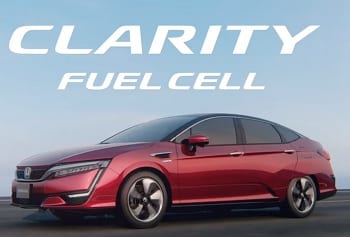
How far are we away from affordable hydrogen cars?
March 8, 2011One of the major drawbacks of hydrogen fuel cells, as with most emerging technologies, is the cost of production.
Fuel cells are notoriously expensive, limiting their adoption by the masses. Government agencies and organizations backed by a substantial budget can incorporate fuel cells as part of their power infrastructure, but they still remain a distant goal for commercial consumption. Toyota, however, is predicting that the price of fuel cells will plummet as early as 2015.
Toyota will begin selling their first hydrogen powered vehicles for commercial use in 2015, promising that the vehicles will be affordable alternatives to conventional options.
The manufacturer intends to make use of the many technological advances that are being made in fuel cell production as a means to reducing the cost of their implementation. Currently, fuel cells make use of a substantial amount of platinum and titanium, as well as other expensive materials. Toyota is developing ways to reduce the application of such rare metals.
They are also working on developing a more streamlined design for the fuel cells themselves, reducing their complexity and part count.
The automaker has already honed their skill at weaving carbon fiber into the tank containing the hydrogen fuel, making it much more sturdy and resistant to damage. Their developments have reduced the time and effort required in constructing the tanks.
Toyota seems to have overcome some of the fundamental challenges that come with implementing fuel cells. However, infrastructure remains a primary concern, and something that may be too large for the car manufacturer to handle on its own.



 HFN News is your leading source for fresh hydrogen and renewable energy updates. Amid the fast-paced growth of hydrogen companies, we provide top-notch news and insights about this exciting sector. Our coverage spans from hydrogen cars to global sustainable initiatives, and we highlight the latest in green jobs and developing hydrogen hubs. We invite you to share your local hydrogen news and explore today’s renewable energy job listings on our site. Thanks for choosing HFN News as your trusted guide to the hydrogen and renewable energy world!
HFN News is your leading source for fresh hydrogen and renewable energy updates. Amid the fast-paced growth of hydrogen companies, we provide top-notch news and insights about this exciting sector. Our coverage spans from hydrogen cars to global sustainable initiatives, and we highlight the latest in green jobs and developing hydrogen hubs. We invite you to share your local hydrogen news and explore today’s renewable energy job listings on our site. Thanks for choosing HFN News as your trusted guide to the hydrogen and renewable energy world!